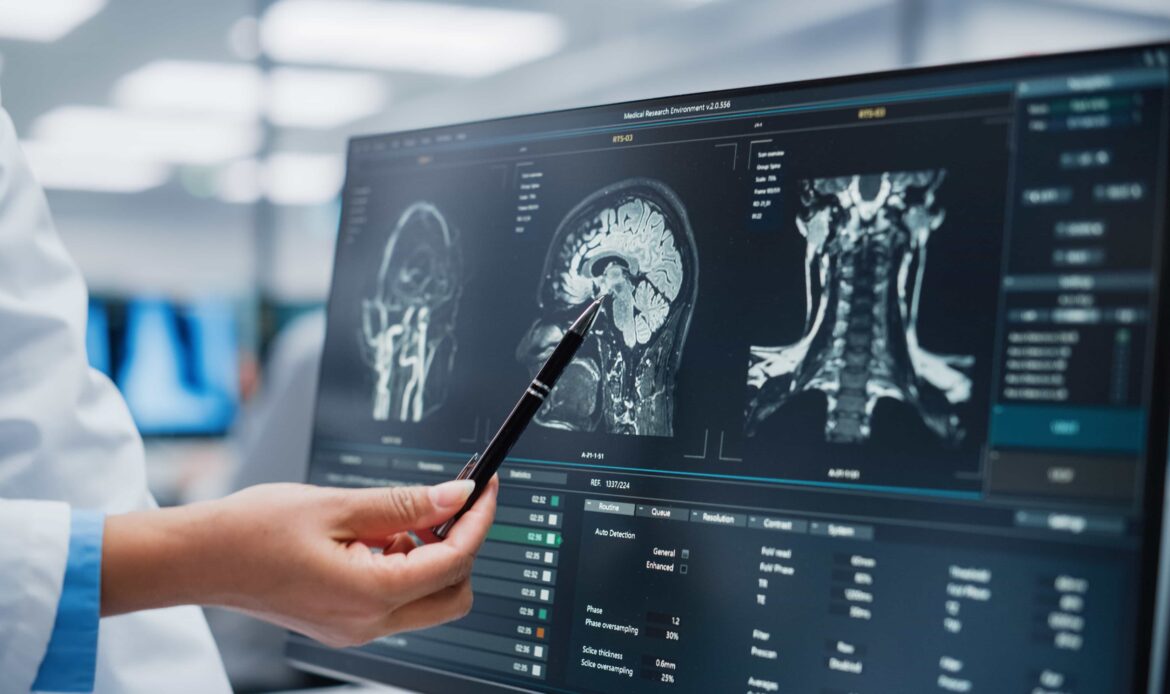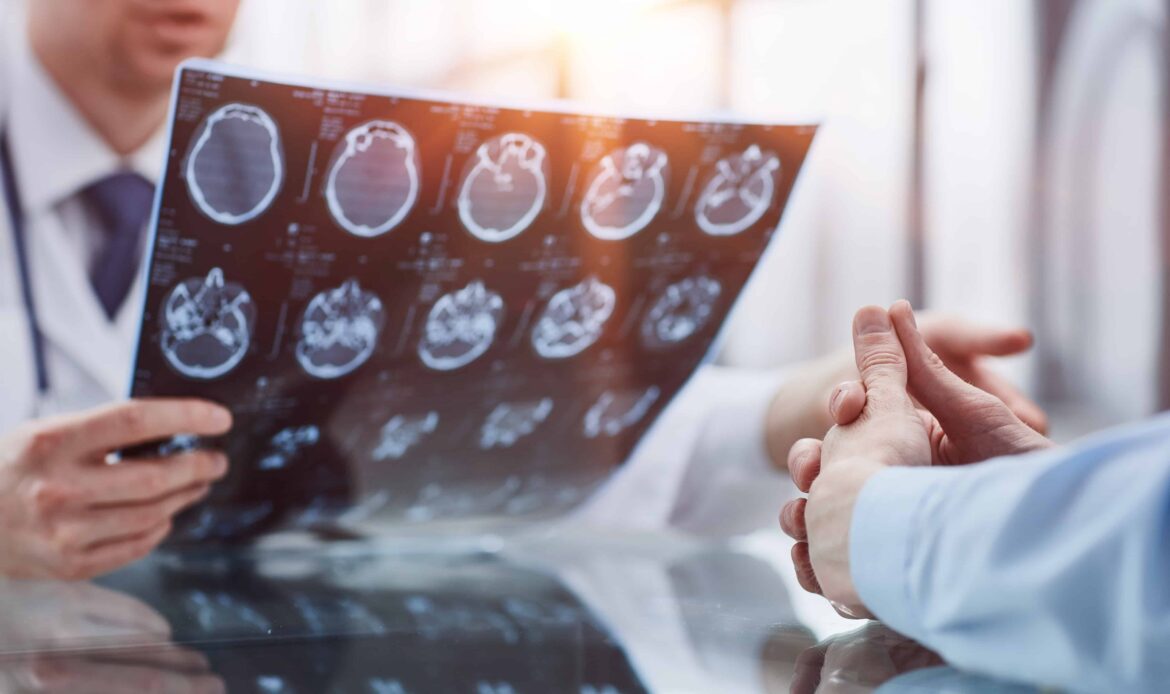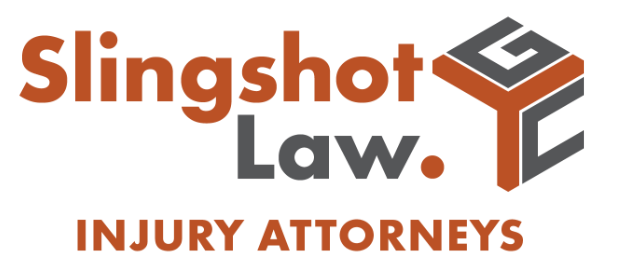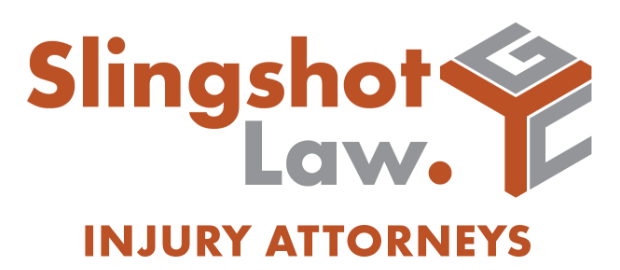If you or a loved one are experiencing memory loss, personality changes, or ongoing cognitive problems after an accident, it may be a sign of a traumatic brain injury with serious, long-term consequences. When insurance companies try to minimize your condition, an experienced Grand Junction brain injury lawyer can step in to protect your rights and guide you through the claims process with confidence.
Brain injury cases demand careful attention to the medical details, financial impact, and legal strategy that connect them. The attorneys at Slingshot Law collaborate closely with medical and economic experts to show the full extent of how a brain injury has affected your life.
Call (800) 488-7480 today to speak with an experienced Grand Junction brain injury lawyer and learn how our team can help you pursue the compensation you need for your recovery and future.
Key Takeaways About Grand Junction Brain Injury Cases
- Traumatic brain injuries may seem minor at first but can progress into lasting conditions that affect thinking, emotions, and physical abilities.
- Colorado law allows brain injury victims to seek compensation for both economic and non-economic losses, including future medical care and reduced earning potential.
- Insurance companies often undervalue these claims, challenging the cause of the injury and downplaying its long-term effects.
- Liability can extend beyond the at-fault driver, potentially involving equipment manufacturers, property owners, or employers under legal theories such as product liability, premises liability, or respondeat superior.
- Successful brain injury cases require collaboration among medical and professional experts, including neurologists, neuropsychologists, vocational specialists, and life care planners.
How Slingshot Law Builds Strong Traumatic Brain Injury Cases in Grand Junction

Traumatic brain injury litigation requires a detailed review of the medical evidence, collaboration with trusted experts, and a deep understanding of how insurance companies evaluate claims. Attorneys at Slingshot Law apply their experience in both insurance defense and prosecution to develop strategies grounded in evidence and Colorado law.
Former insurance defense attorney Drew Gibbs brings experience managing complex medical claims involving head injuries. His background offers insight into how insurers assess causation, review medical literature, and evaluate timelines between incidents and reported symptoms.
This insight helps the firm prepare and present evidence that meets Colorado’s standards for negligence and bad faith claims.
Attorney Scott Crivelli’s military service included handling cases that involved medical and behavioral evidence related to trauma. That experience taught him to present complex information about neurological and psychological conditions in a clear and structured manner.
These skills help our team clearly explain brain injury symptoms, cognitive effects, and behavioral changes to judges, juries, and insurers.
How Our Grand Junction Brain Injury Lawyers Coordinate Expert Medical Teams
A Grand Junction brain injury attorney at Slingshot Law collaborates with medical professionals to document every aspect of an injury’s impact. Neurologists use imaging tools like MRI and diffusion tensor imaging (DTI) to detect even subtle changes in the brain’s structure.
Neuropsychologists perform standardized cognitive tests that measure attention, memory, and executive functioning. Vocational rehabilitation specialists assess how these deficits affect a person’s ability to perform specific job tasks, while life care planners outline ongoing treatment, therapy, and support service needs.
Together, this documentation provides a clear, detailed picture of how the injury affects long-term functioning.
How Our Attorneys Challenge Insurance Company Tactics in Brain Injury Claims
Insurance carriers often rely on experts who interpret findings conservatively or connect symptoms to unrelated factors. Slingshot Law presents evidence from current medical research, treating specialists, and objective testing to clarify the medical basis of brain injuries.
By comparing independent evaluations with insurer assessments, the firm identifies inconsistencies and supports claims with verifiable medical data. This evidence-based approach helps ensure your claim receives fair consideration under Colorado law.
Colorado Law and Traumatic Brain Injury Compensation
Colorado statutes recognize traumatic brain injuries as catastrophic impairments warranting comprehensive compensation for both immediate and lifetime impacts. Legal frameworks address the unique challenges TBI victims face proving invisible injuries and securing appropriate damages.
Proving the Cause of Your Brain Injury in Colorado Lawsuits
Proving traumatic brain injuries resulted from specific accidents challenges victims whose symptoms emerge gradually or whose imaging appears normal initially.
Colorado law requires proof that an accident more likely than not caused the injuries being claimed. Because traumatic brain injuries can involve subtle or delayed symptoms, expert medical testimony is often essential.
Under Colorado Rule of Evidence 702, courts typically require qualified expert witnesses such as neurologists or neuropsychologists to explain how the accident caused specific neurological changes. This requirement is especially important when pre-existing conditions or later incidents complicate the timeline.
Medical testimony becomes paramount in establishing causation between accidents and brain injuries, particularly when pre-existing conditions or subsequent incidents complicate timelines.
Biomechanical engineers explain how collision forces translate into brain movement within the skull, causing diffuse axonal injury even without direct head impact. Treating physicians document symptom progression consistent with traumatic brain injury rather than other causes.
Damage Categories in Colorado TBI Cases
Economic damages for brain injuries go well beyond initial hospital bills and often include lifetime care needs far greater than those in typical injury cases.
Future medical expenses include neurological monitoring, cognitive rehabilitation, psychological counseling, and medications managing TBI symptoms. Lost earning capacity calculations consider not just current wage loss but eliminated career advancement, reduced work life expectancy, and inability to adapt to changing job markets.
Non-economic damages reflect profound lifestyle changes brain injuries impose on victims and families. Cognitive deficits can limit intellectual pursuits, memory problems may strain relationships, and personality changes can reshape how victims see themselves and interact with loved ones.
Colorado doesn’t cap non-economic damages in brain injury cases unless medical malpractice caused the TBI, recognizing these injuries’ devastating personal impacts.
Types of Brain Injuries From Mesa County Accidents

Accidents in Mesa County cause various brain injuries, each needing specific medical proof and legal support. A Grand Junction brain injury lawyer can document these conditions and pursue fair compensation.
Mild TBI and Post-Concussive Syndrome After Mesa County Accidents
Concussions from crashes on Patterson Road or falls at Mesa Mall may seem minor but often lead to long lasting symptoms like headaches, dizziness, memory issues, and mood changes. Insurers frequently claim these are psychological.
Proving mild TBI requires strong evidence. Neuropsychological tests, vestibular therapy notes, and sleep studies show objective impairment, while work records and family statements demonstrate real functional changes.
A Grand Junction brain injury lawyer can use this documentation to establish the neurological basis of these symptoms and demand proper compensation.
Severe Brain Injuries From High-Impact Crashes in Grand Junction
Severe injuries from crashes on I-70 or motorcycle wrecks near the Utah border often cause loss of consciousness, skull fractures, and neurosurgery at St. Mary’s Medical Center. Even with clear medical proof, insurers dispute long-term effects.
Recovery outcomes vary from full-time care to partial independence after rehabilitation. Insurers use this uncertainty to minimize payouts. A Grand Junction brain injury lawyer can secure expert evaluations and life care plans that reflect the true extent of the injury.
Building Strong Brain Injury Cases in Grand Junction
Successfully prosecuting traumatic brain injury claims requires immediate action preserving evidence and coordinating comprehensive medical evaluation documenting all deficits.
The Importance of Early Medical Testing After a Brain Injury
Seek emergency evaluation immediately following any head impact or violent body motion that might cause brain injury, even without losing consciousness or obvious symptoms. Emergency departments at Community Hospital or St. Mary’s Medical Center document initial Glasgow
Coma Scale scores, pupil responses, and neurological findings that prove valuable later. Refusing medical attention or delaying treatment provides insurance companies ammunition to dispute brain injury claims.
Follow-up with neurologists specializing in traumatic brain injury rather than general practitioners who may miss subtle symptoms. Request comprehensive testing including MRI with DTI sequencing, neuropsychological evaluation, vestibular assessment, and visual processing examination.
Document all symptoms in detailed journals, noting cognitive struggles, emotional changes, and physical problems affecting daily activities.
How Rehabilitation Strengthens Your Brain Injury Claim
Brain injury rehabilitation requires extensive therapy addressing cognitive, physical, and emotional impacts simultaneously.
Physical therapy improves balance and coordination, occupational therapy develops compensatory strategies for cognitive deficits, and speech therapy addresses communication problems. Psychological counseling helps victims and families adjust to personality changes and relationship strain.
Actively taking part in rehabilitation shows commitment to recovery and provides detailed documentation of ongoing limitations. Therapy notes provide real-time proof of challenges that insurers often try to dismiss.
Consistent attendance and effort counter malingering accusations while establishing the extensive treatment brain injuries require. Missing appointments or refusing recommended treatment severely damages brain injury claims regardless of reasons:
- Insurance companies argue non-compliance proves injuries aren’t serious
- Gaps in treatment suggest symptoms resolved despite ongoing problems
- Refusing therapy appears like unwillingness to mitigate damages
- Inconsistent participation undermines credibility about limitation severity
Brain injury victims must prioritize treatment compliance even when therapy seems ineffective or symptoms interfere with attendance.
Long-Term Effects of Traumatic Brain Injuries on Victims and Families

Brain injuries can have lasting effects, creating challenges that continue to evolve long after the initial trauma.
Cognitive Decline and Dementia Risk
Medical research shows that traumatic brain injuries can speed up cognitive aging and raise the risk of developing dementia or Alzheimer’s disease later in life. The degree of risk depends on factors such as injury severity, number of injuries, age at the time of trauma, and overall health.
Ongoing medical monitoring and cognitive therapy are important when assessing long-term care needs. Insurance companies often downplay these risks, focusing on current function rather than potential decline.
Medical literature and expert testimony link present brain injuries to future neurodegenerative conditions.
How Brain Injuries Affect Families and Relationships
Brain injuries profoundly affect spouses, children, and extended family members who become caregivers, emotional supports, and financial providers.
Personality changes transform loving partners into strangers exhibiting anger, apathy, or inappropriate behavior. Cognitive deficits prevent parents from helping with homework, attending events, or maintaining household responsibilities.
Brain injuries can place substantial emotional and financial strain on families. Studies suggest that these stresses may lead to increased marital difficulties and family disruption compared to the general population.
Colorado law allows certain family members, such as spouses, to seek loss of consortium damages when a brain injury disrupts companionship and emotional support.
FAQs for Grand Junction Brain Injury Lawyers
How can I prove a brain injury when MRIs appear normal?
Traditional MRIs may miss microscopic brain changes. Advanced imaging such as DTI, SPECT, or PET scans can help detect subtle neurological damage but should not replace clinical and neuropsychological evaluations.
Neuropsychological testing provides objective evidence of cognitive impairment, while symptom records and witness statements demonstrate behavioral and functional changes. A Grand Junction brain injury lawyer can coordinate these evaluations to build a strong evidentiary record.
What if my symptoms appeared weeks after the accident?
Delayed symptom onset is common in brain injuries. As the body recovers from the initial trauma, issues with memory, focus, or mood can become more noticeable. Medical research recognizes this delayed manifestation, so maintaining detailed records that connect symptoms to the accident remains important.
Can I recover compensation if I had previous concussions?
A history of concussions does not prevent recovery. Colorado law allows compensation for the worsening of pre-existing conditions. Expert medical testimony can clarify which impairments resulted from the most recent injury.
What types of experts are involved in brain injury cases?
Cases often involve neurologists, neuropsychologists, neuroradiologists, biomechanical engineers, vocational specialists, economists, and life care planners. Each expert contributes to explaining the cause, impact, and long-term effects of the injury.
How much is a traumatic brain injury case worth?
The value of a brain injury case depends on factors such as injury severity, age, occupation, medical needs, and available insurance coverage. Each case is unique, and compensation reflects the extent of the injury’s impact on health, employment, and quality of life. A Grand Junction brain injury lawyer can assess the evidence, consult with experts, and pursue compensation that accurately reflects your long-term needs under Colorado law.
Secure Legal Help From a Grand Junction Brain Injury Lawyer Today

Traumatic brain injuries can change every part of life, including careers, relationships, and identity. Insurance companies often dispute or minimize these ‘invisible’ injuries, making it important to act quickly to preserve medical evidence, protect your legal rights, and get the justice you deserve.
If you suffered a brain injury because of another person’s negligence, a Grand Junction brain injury lawyer at Slingshot Law can help you navigate the medical and legal complexities of your claim and pursue compensation that reflects your long-term needs.
Our attorneys draw on experience in both insurance defense and injury litigation to present evidence clearly and effectively under Colorado law. Call (800) 488-7480 today for a free consultation about your case.
Grand Junction Office
Address: 734 Main Street, Grand Junction, CO 81501
Phone: (800) 488-7480

